NATIVITY OF THE
LESSONS
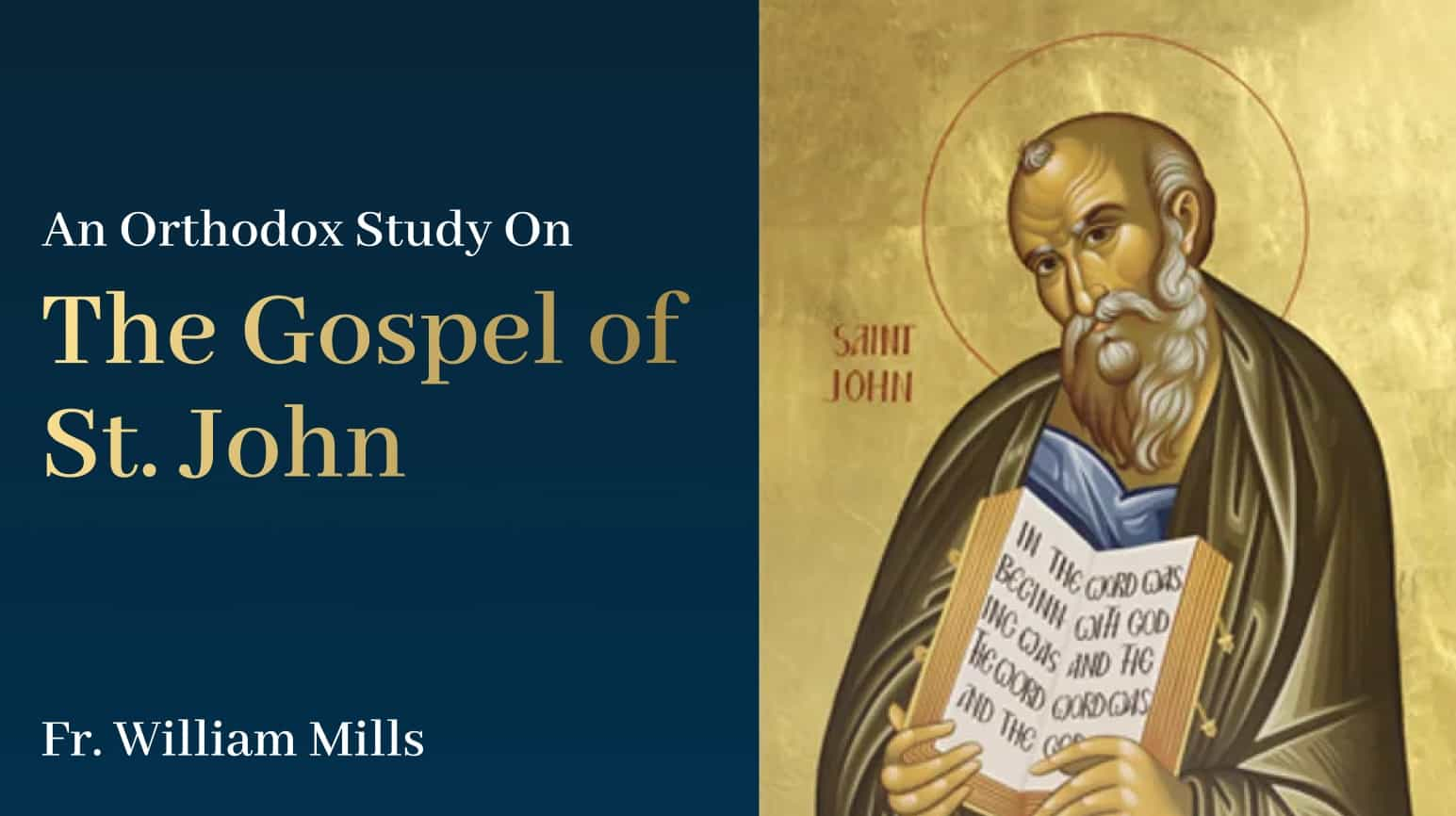
Gospel of St. John
In 2020, during the height of the pandemic, Fr. William (Bill) Mills, embarked on an ambitious journey to create bible studies for every book of the bible as a way of continuing to feed his parish spiritually during this time. In his study of the Gospel of St. John, Fr. Bill, explores the historical significance within the Orthodox Church, and symbolic meaning of this Gospel.
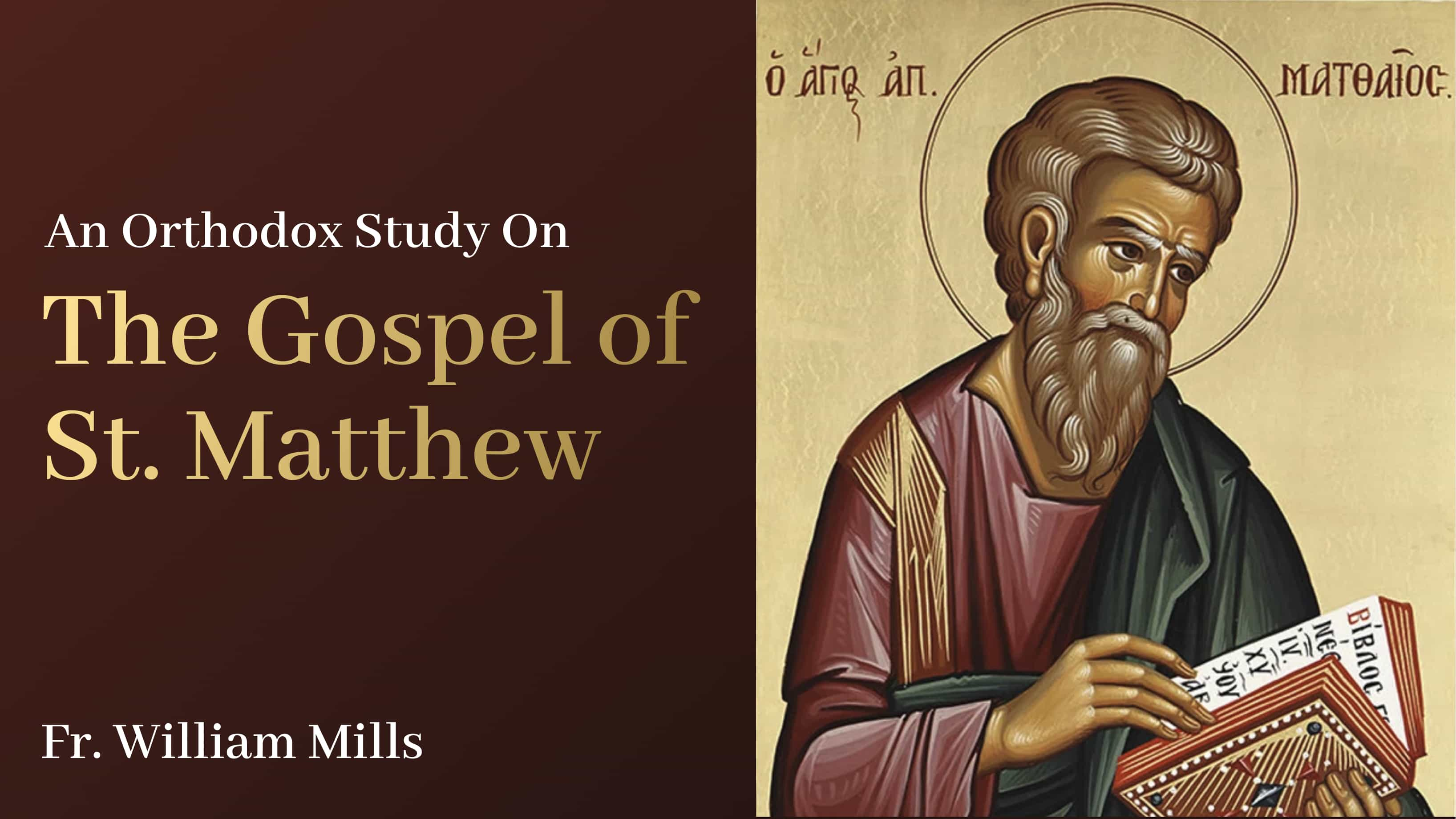
Gospel of St. Matthew
In his study on the Gospel of St Matthew, Fr Bill introduces the first of the three Synoptic Gospels, and highlights some of the differences between between Matthew and John's Gospels. The Gospel of Matthew is the longest of the Synoptic Gospels and it's read for four months out of the church year. It teaches the basic fundamentals of our faith. We hope this study serves as companion as you read through the Gospel of Matthew.
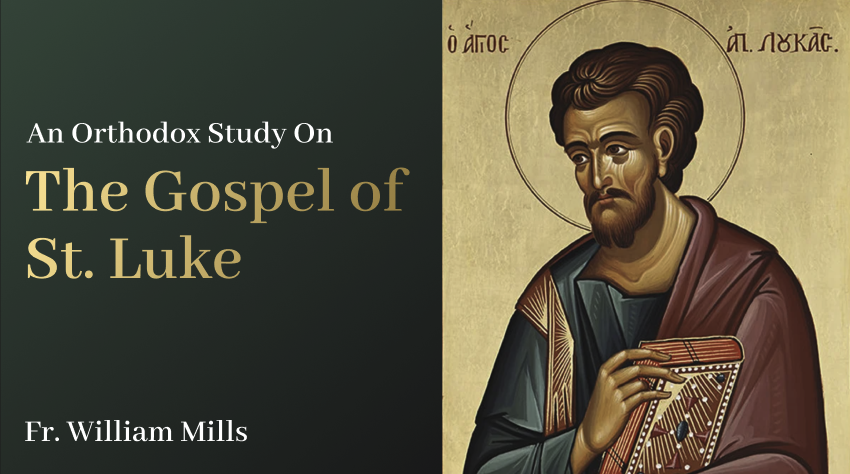
Gospel of St. Luke
The Gospel of Luke, “a light to the gentiles”, has a great significance to our Church and to our spiritual life as Christians. As a synoptic gospel, it shares many of the events described in Matthew and Mark, however the Gospel of Luke was written for the gentiles and it places emphasis on specific themes, such as salvation. In this study, Fr. Bill explores other key differences in the Gospel of Luke and how this gospel can help grow and strengthen our faith. We hope this study serves as companion as you read through the Gospel of Luke.
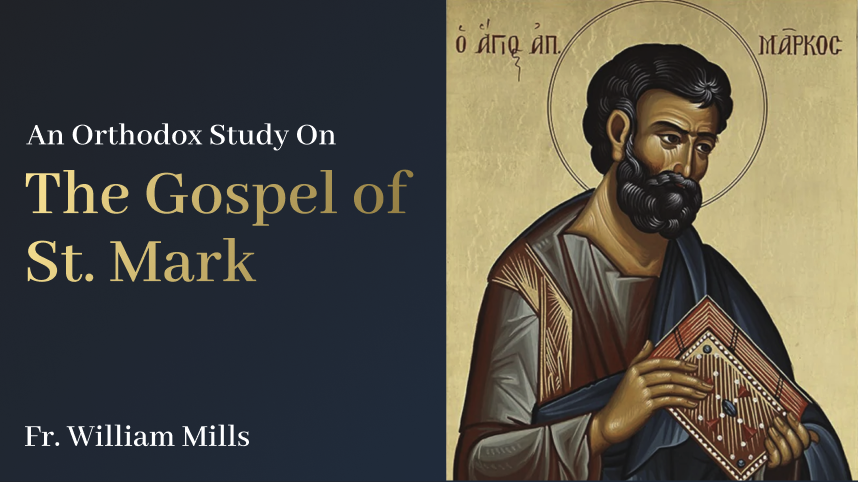
Gospel of St. Mark
St. Mark's Gospel is a statement against Rome. This Gospel proclaims the Good News of Jesus Christ in a time when all good news was related to Rome and its Emperor. This is the good news about God and the Anointed One Jesus Christ. This would have gone against all social norms of the time. Would you go against your society and cultural norms to follow Christ? Join Fr. Bill as he explores these topics and many others in this study of the Gospel of St. Mark.
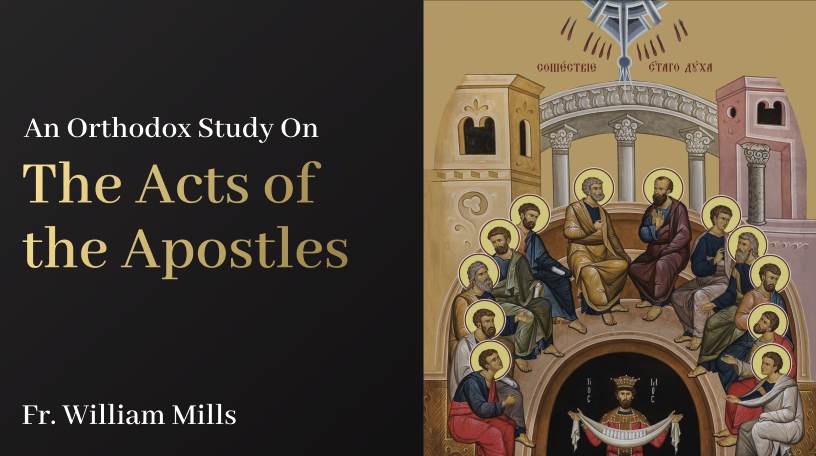
Acts of the Apostles
Written by St. Luke, the book of Acts is the second volume of Luke’s writings and serves as a companion to his Gospel. Acts is not a letter, historical account, or biography, but rather a narrative detailing the spread of the Gospel message. It features dramatic stories set in urban areas with diverse cultures, in contrast to the Gospels, where the Revelation primarily unfolded in rural settings. Join Fr. Bill as he explores the book of Acts and its implications for our Christian journey today.

St. Paul's Letter to the Romans
Paul, the apostle to the Gentiles, addressed many communities throughout the Roman Empire. When he wrote his letter to the church in Rome, he was speaking to believers at the heart of the empire itself. To fully appreciate St. Paul's writings, we must understand the context in which he lived—namely, the Roman Empire and the Old Testament scriptures. Join Fr. Bill as he explores the historical backdrop of Paul's writings, and use this study to accompany your own reading of the book of Romans.
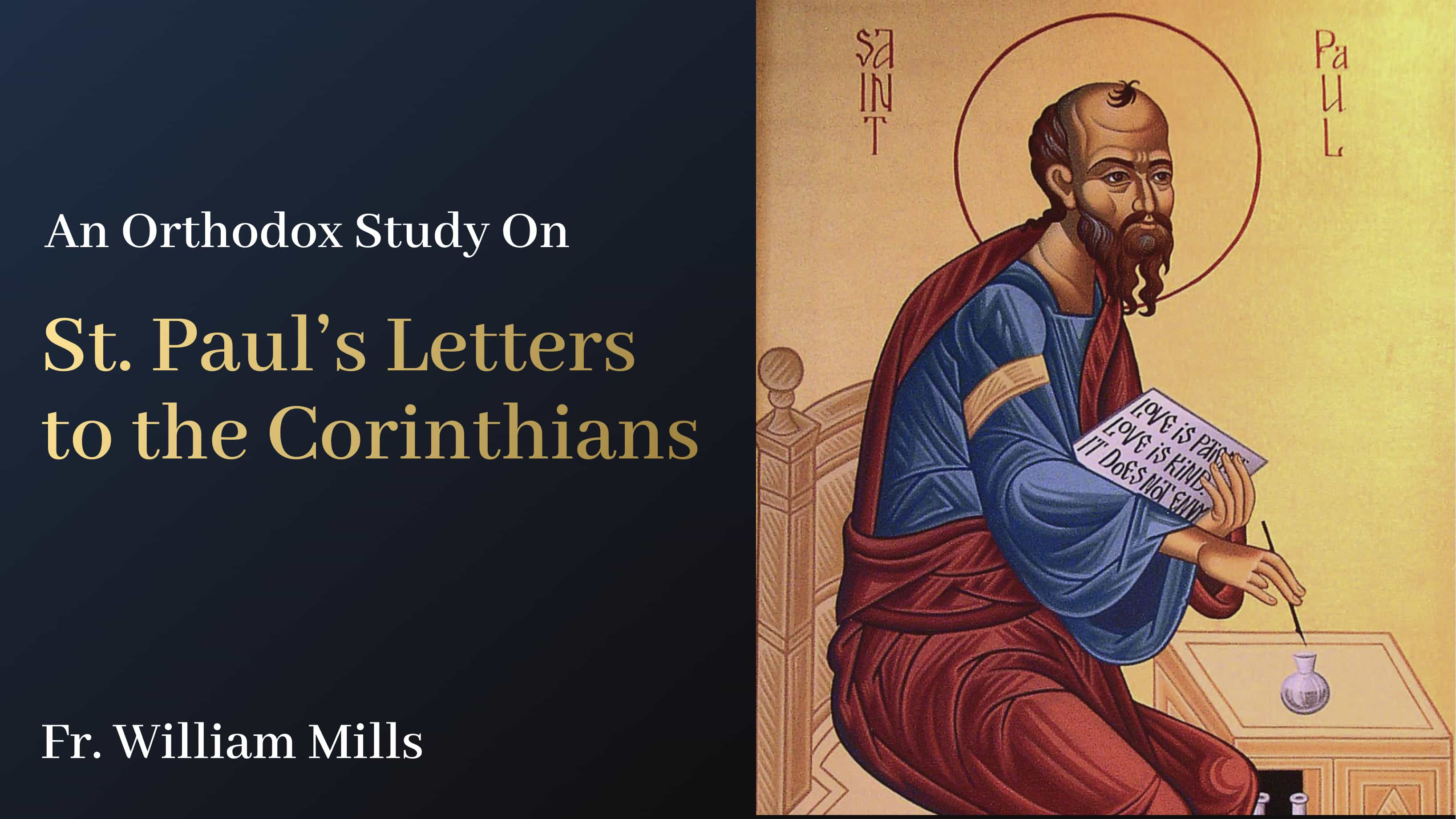
St. Paul's Letter to the Corinthians
Located in modern-day Greece, Corinth was a bustling port city that Paul used as a hub to spread the Gospel to the wider world. His two letters to the Corinthians are among the longest of his epistles. In them, he addresses key themes such as the role of saints, the centrality of the Cross, spiritual pride, and the importance of community life. Join Fr. Bill as he delves into these topics and more in his study of First and Second Corinthians.
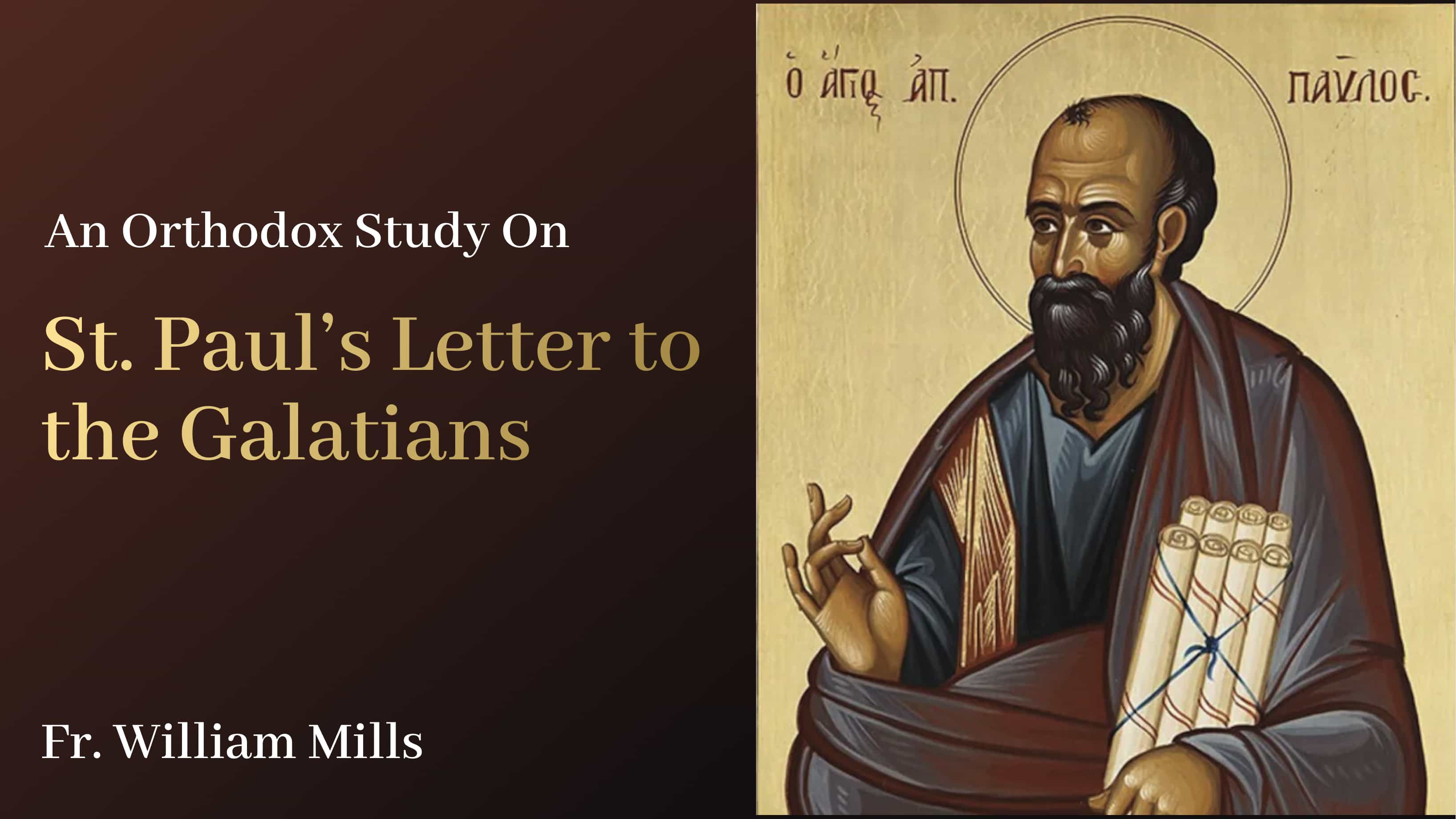
St. Paul's Letter to the Galatians
.Though short, St. Paul’s letter to the Galatians is of great significance. Studying Galatians, alongside Ezekiel and the Gospel of Mark, provides a key to understanding the broader biblical narrative. Galatia was a province located in the center of Asia Minor, north of Paul’s home in Tarsus. In this letter, Paul outlines his argument against the Judaizers, emphasizing that it is faith in Jesus Christ—not adherence to the law—that brings justification. Use Fr. Bill’s study on Galatians as a companion to deepen your understanding as you explore this powerful book on your own.
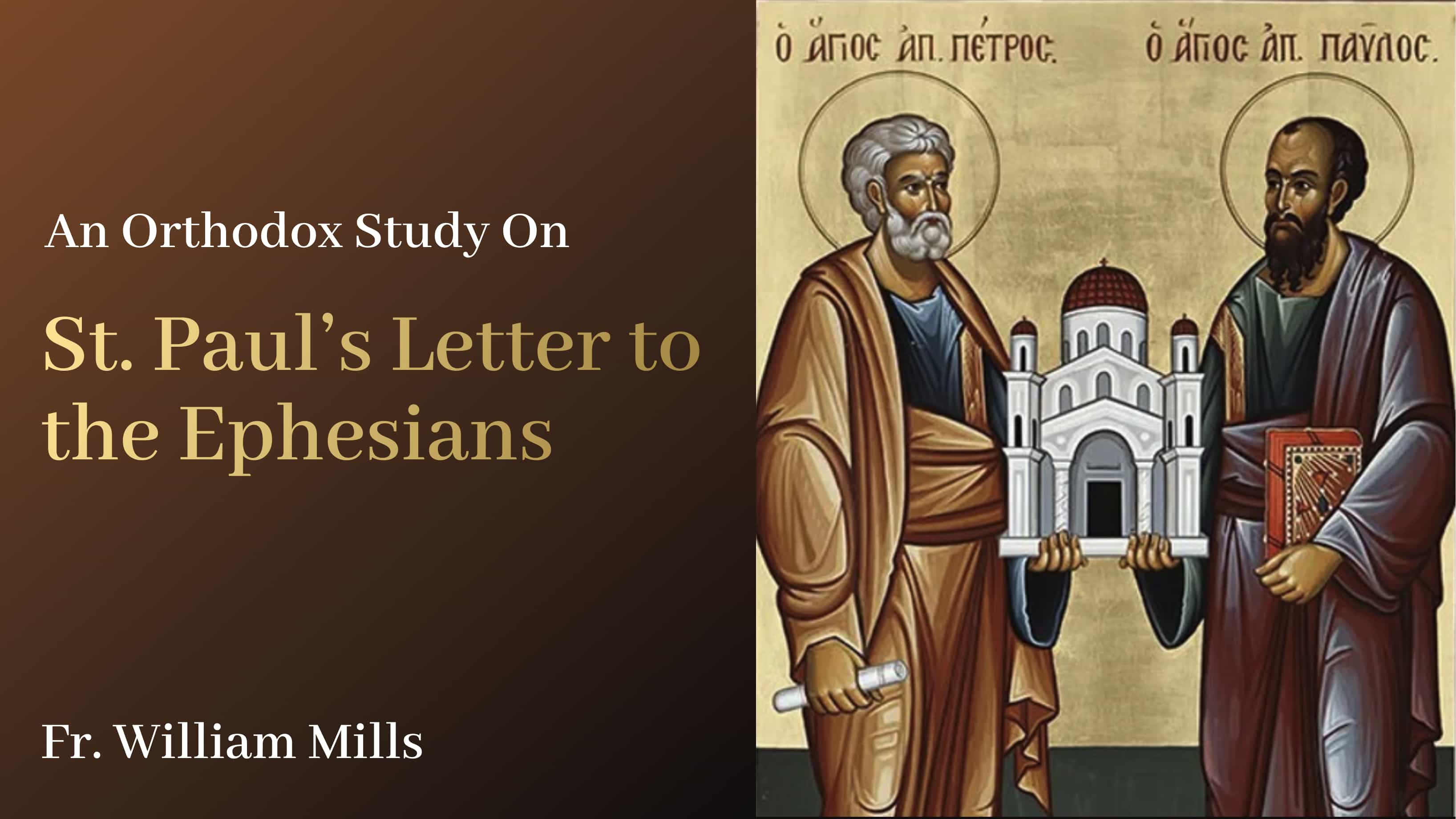
St. Paul's Letter to the Ephesians
St. Paul’s letter to the Ephesians offers a foundational guide for Christian life. Unlike his letters to the Corinthians or Galatians, which address specific issues, Ephesians provides a broader overview of Christ’s teachings. Paul explains that the Gospel equips believers for ministry and service in the world, emphasizing unity among Christ’s followers regardless of social, economic, or cultural background. Our hope is that this study encourages you on your faith journey as we explore how the Gospel transformed lives in the ancient world—and how it continues to impact lives today.
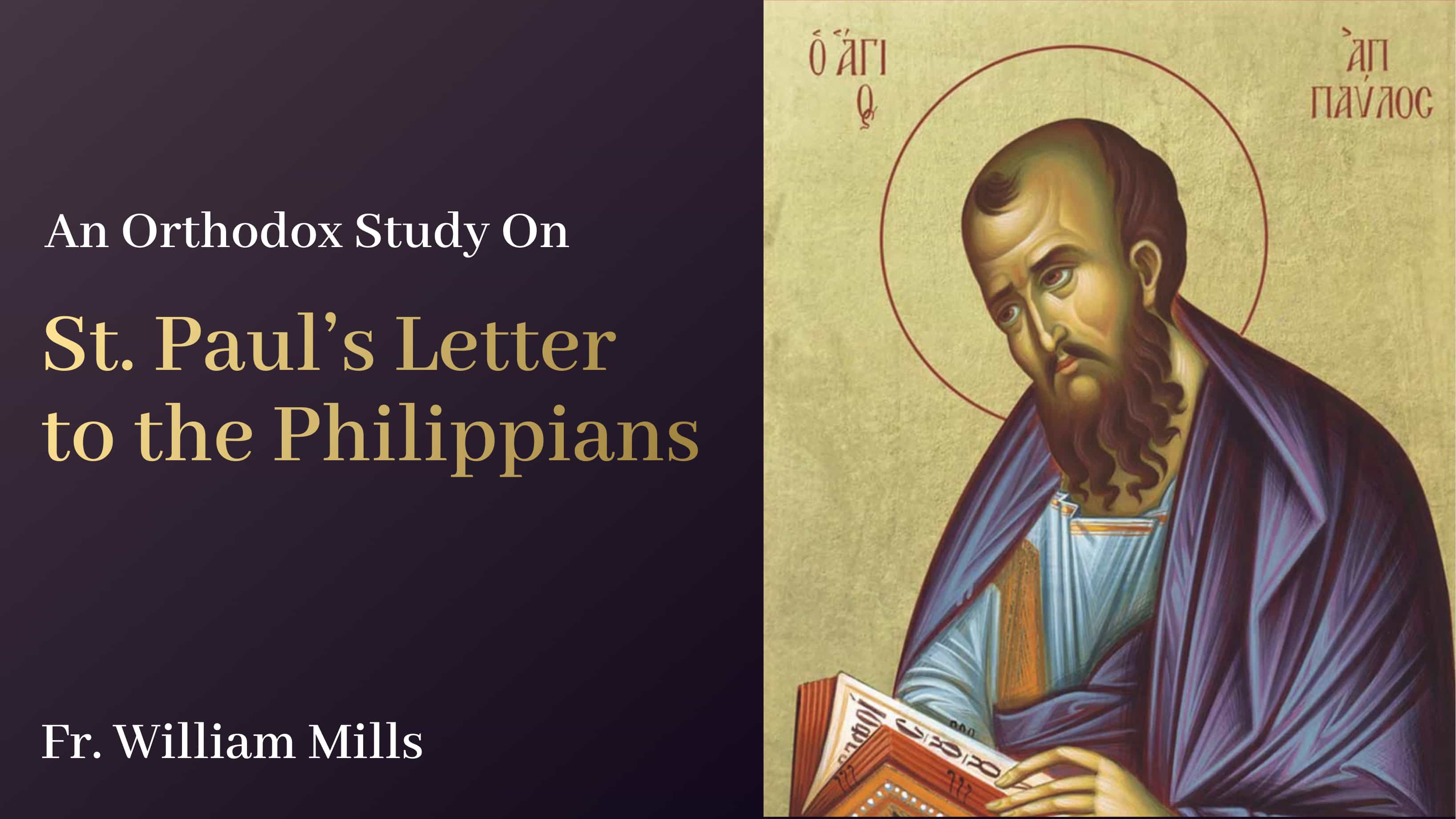
St. Paul's Letter to the Philippians
Named after Philip of Macedon, the father of Alexander the Great, Philippi was predominantly a retirement city for Roman soldiers. This was St. Paul’s audience when addressing the church in Philippi. His letter to the Philippians is one of encouragement, faith, hope, and humility. Paul draws on themes familiar to Roman soldiers, such as service and duty, to teach them how to live as followers of Christ. Fr. Bill will guide us through all four chapters of this remarkable letter, combining them into one focused and impactful study. We hope this concise exploration will enrich your understanding and supplement your own personal study of St. Paul’s letter to the Philippians.
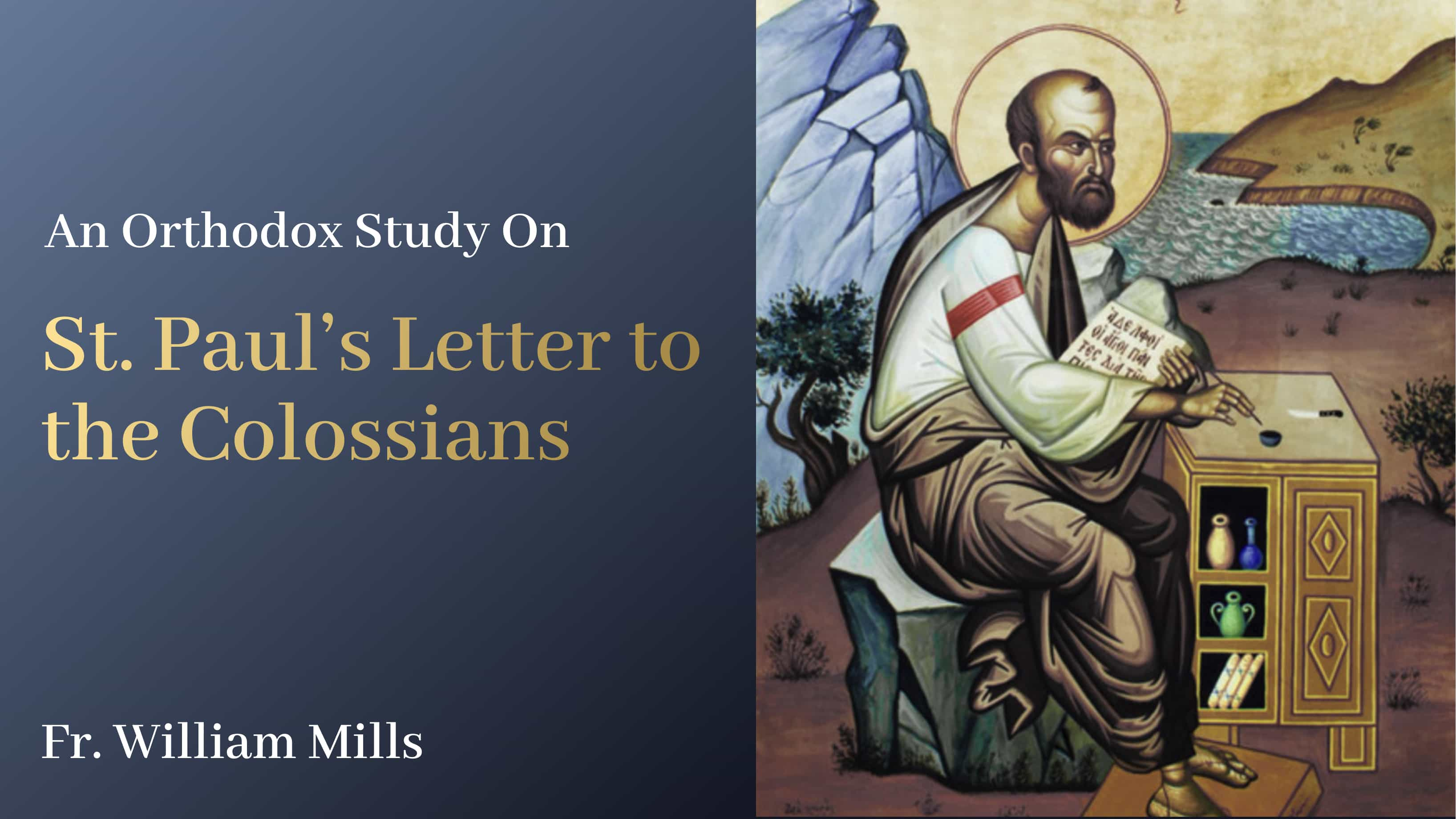
St. Paul's Letter to the Colossians
Paul’s letter to the Colossians, one of his shorter works, addresses the challenge of false teachings that were causing the church to backslide. To counter this, Paul reinforces the original teachings of the faith, urging his readers to remain steadfast. While many of the themes he discusses appear in his other letters, gratitude lies at the heart of his message. We hope this concise study of the letter to the Colossians will be both edifying and helpful as you grow closer to Christ.
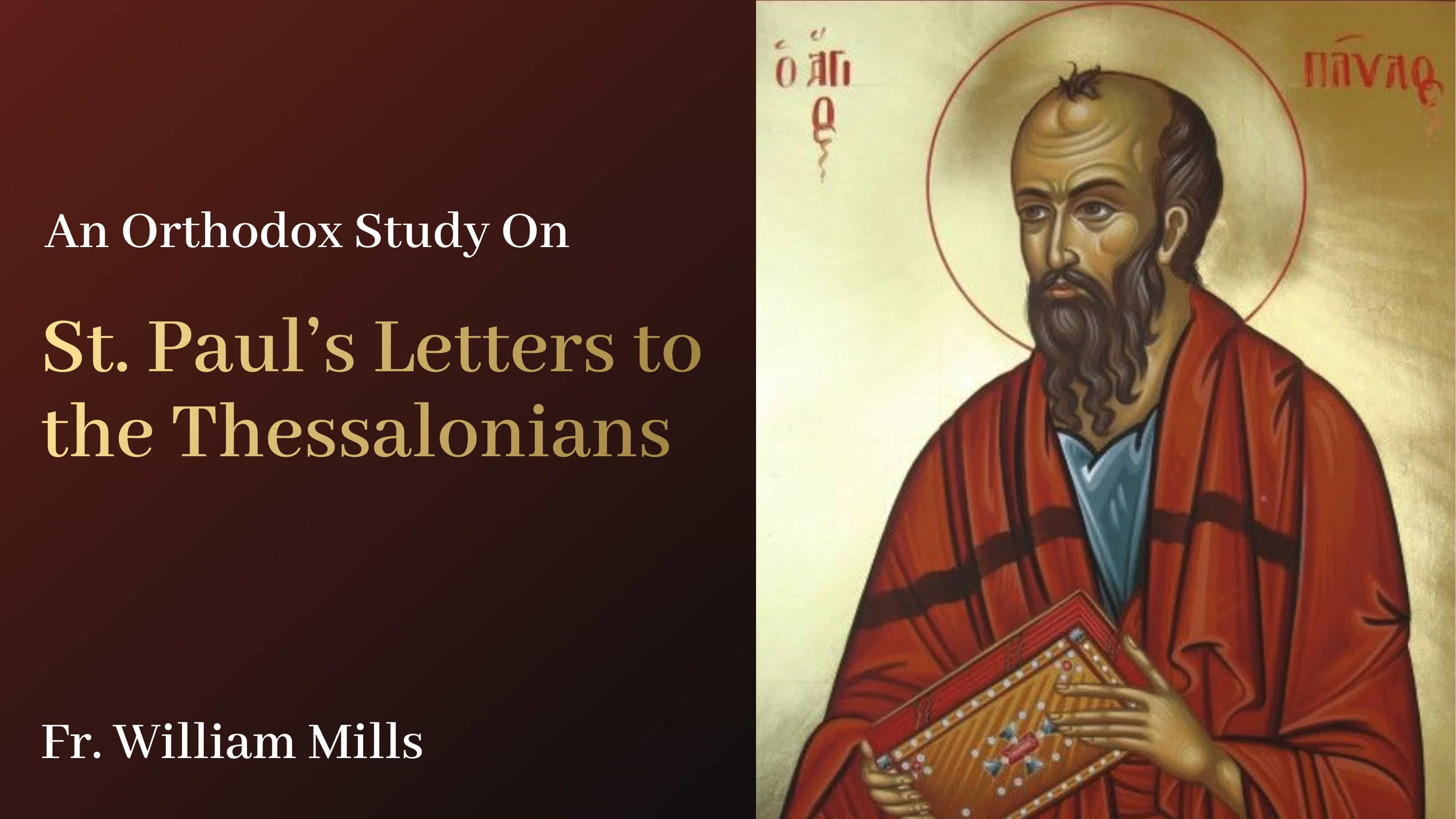
St. Paul's Letter to the Thessalonians
Paul wrote two brief yet profoundly rich letters to the church in Thessalonica. In these letters, he emphasizes our deep connection as Christians—through baptism, we are united as one body within the larger Orthodox faith. Paul encourages the Thessalonians, and us, to live a life of continual repentance as we await the Lord's return. His letters also offer practical guidance, addressing the "bread and butter" issues of how to live out our faith and nurture a strong community.
Fr. Bill’s study sheds light on the timeless relevance of Paul’s words, showing how they speak directly to the challenges of our parish communities today. Let this study of Paul’s letters to the Thessalonians serve as a reminder and encouragement: we are a family, brothers and sisters in Christ.

St. Paul's Letters to Timothy
Paul’s letters to Timothy are two brief but profoundly important writings, much like his letters to the Thessalonians. Timothy was a close friend and coworker of Paul, dedicated to spreading the Gospel. Paul affectionately refers to Timothy as his "true son in the faith," despite their different backgrounds—Timothy as a Gentile convert and Paul as a former Pharisee. This reflects Paul’s mission to share the Gospel with all people.
In these letters, Paul emphasizes critical themes such as the qualifications for church leadership, the dangers of false teachers, and the centrality of prayer. We hope this short study of Paul’s letters to Timothy encourages and strengthens your faith in Jesus Christ.

St. Paul's Letter to Titus
Titus, like Timothy, was a trusted coworker of the Apostle Paul. Paul left Titus on the island of Crete to oversee the church that had been established there. In this letter, Paul addresses issues that have arisen within the church, similar to his approach in the letter to the Galatians. Key themes include obedience, freedom from being bound by Jewish traditions, and the importance of living a productive and Godly life. We hope this brief Bible study provides valuable context as you explore Paul’s letter to Titus.
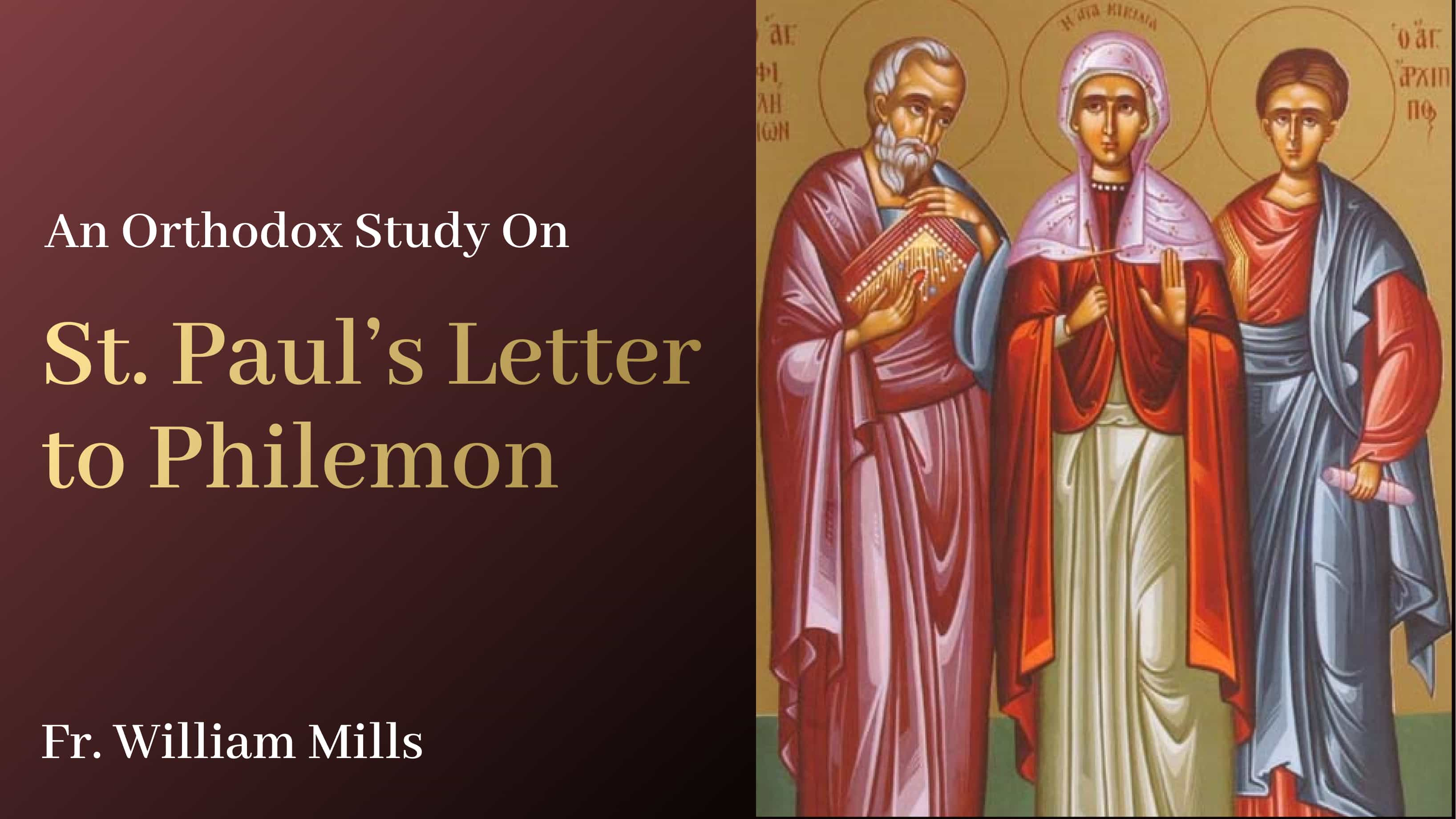
St. Paul's Letter to Philemon
The letter to Philemon is both brief and unique, as it is addressed to a specific individual rather than a church. Philemon was a slave owner whose slave, Onesimus, had run away. During his time away, Onesimus became a Christian and developed a close relationship with the Apostle Paul. In this letter, Paul appeals to Philemon to welcome Onesimus back—not as a slave, but as a brother in Christ. This was a radical and transformative concept for its time. We encourage you to read this short letter again, imagining yourself in Philemon’s place. Let this story challenge your perspective and deepen your faith.
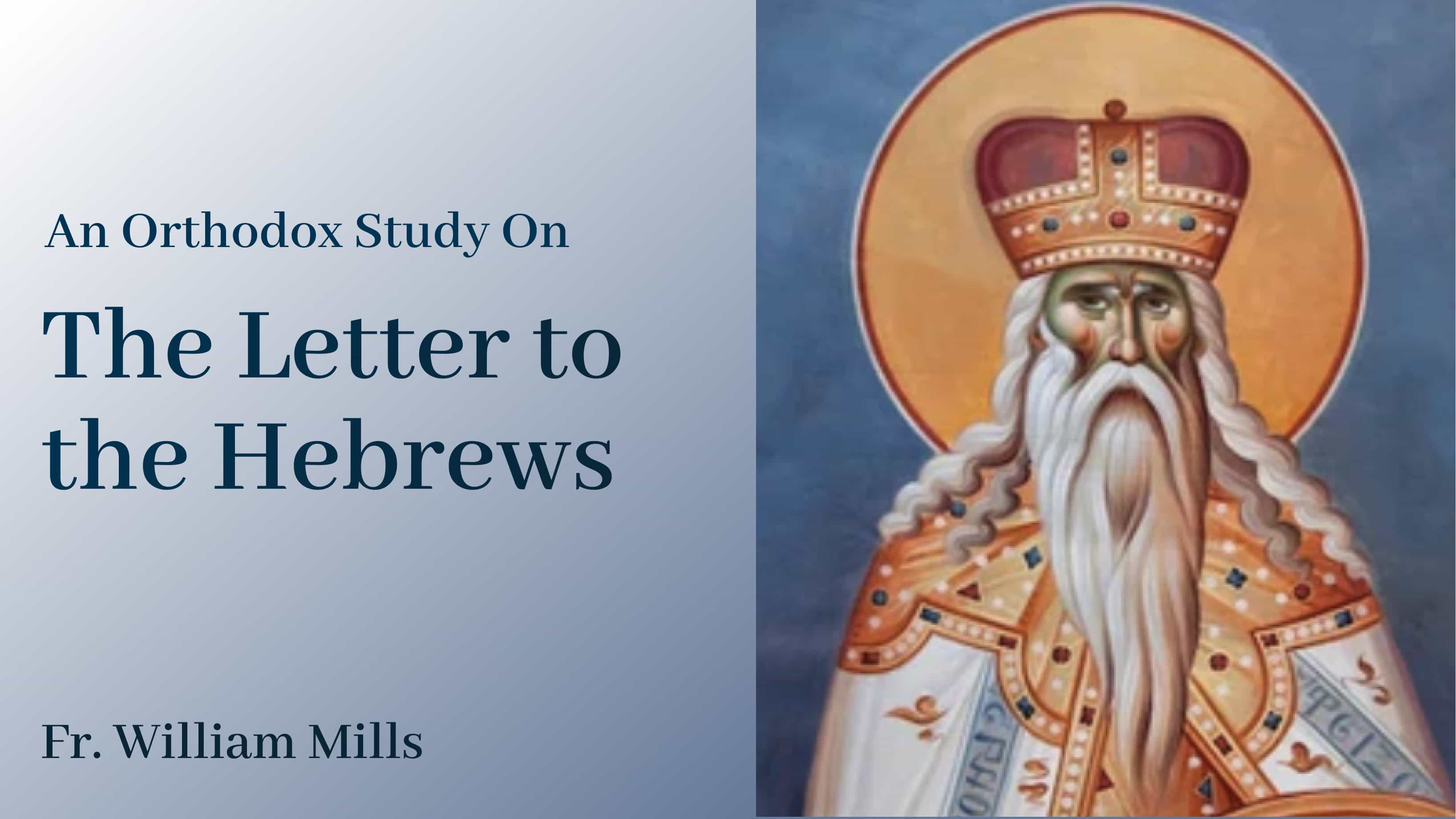
The Letter to the Hebrews
The Epistle to the Hebrews is unique among New Testament writings, as it does not follow the structure of Paul’s other letters. There is no greeting from Paul, and the authorship remains uncertain. Despite this, Hebrews offers profound insight and instruction for the Christian life. Written as a proclamation, the epistle addresses Jewish converts to Christianity who were tempted to return to Judaism. The author expresses concern for the church members’ perseverance in faith.
Key themes include Jesus as the ultimate High Priest in the order of Melchizedek, the importance of steadfast faith, and hospitality. A study of Hebrews is enriched by familiarity with the first four books of the Torah, as the epistle frequently references Old Testament themes and figures.
We encourage you to delve into this powerful letter and let it deepen your understanding of Christ and strengthen your journey of faith.

The Letter of St. James
The Epistle of St. James is a brief yet profoundly instructive book that emphasizes the practical outworking of our faith. It challenges us as Orthodox Christians to let our ministries and actions flow from our faith. If we participate in the liturgy, and pray daily our lives must reflect that faith through tangible acts of love. As James famously writes, "Faith without works is dead." The church is a hospital for the soul, where healing comes not only through words but also through deeds. May this study guide you as you explore the wisdom of St. James' letter and deepen your commitment to living out your faith.

The Letters of St. Peter
In this short video study, Fr. Bill explores themes such as maintaining unity in the faith, guarding against false doctrine, and living as a Christian community.
Many of these themes are echoed in other books, such as Timothy, underscoring their importance. Their repetition highlights how vital these teachings were to the early Church—and how relevant they remain for us today. Let this study serve as a general overview as you delve deeper into the wisdom of St. Peter’s letters.

The Letters of St. John
The more we hear, read, and study scripture, the more connections we begin to see. These connections are invaluable, bringing the text to life in profound ways. In this study, you’ll notice ties between the Gospel of John and his three letters. These scriptures are life-giving, even though they were written for the community of believers nearly 2,000 years ago. Seeing the connections brings these scriptures to life instead of confining them to the context of the 1st-century Christians.
Fr. Bill highlights key themes such as God as light, God as love, and recognizing the spirit of the antichrist. Though these letters are brief, they are deeply meaningful. Do not overlook them—pray as you read and study, and allow this video to supplement your personal exploration of the text.

The Letter of St. Jude
Repetition in the epistles of the New Testament is important. In the Epistle of Jude, we once again encounter familiar themes found throughout other letters, reminding Christians of what’s important. The central message of this epistle is the importance of keeping faith in times of division.
This video serves as a brief overview of the Epistle of Jude, but we encourage you to take the time to read and study it on your own, allowing its message to inspire and strengthen your faith.

The Revelation of St. John
Revelation is one of the most unique and intriguing books in the New Testament. Unlike the gospels or epistles, it is apocalyptic literature, meaning "that which is revealed." As Orthodox Christians, we do not read this book during Sunday liturgy, but it is important that we understand it.
Fr. Bill begins this study with an in-depth exploration of the first four chapters, which are foundational for understanding the rest of the text. He encourages you to engage deeply by listening to these videos, reading your Bible, studying the footnotes, and exploring cross-references. Why is this important? Revelation speaks of God's ultimate triumph over destruction, evil, and sin—realities as prevalent today as they were in the first century.
This book was written to provide hope to Christians in times of darkness. Many of us face our own struggles, whether personal or external, and Revelation reminds us… God will make all things new. In this study, Fr. Bill explains key themes such as symbolism, numerology, and the promise of the new Jerusalem. Take your time reading the book of Revelation, and use these video studies as a companion on your journey. We pray that it brings you hope in times of trouble, reminding you that God has a good and perfect plan.
Glory be to God.